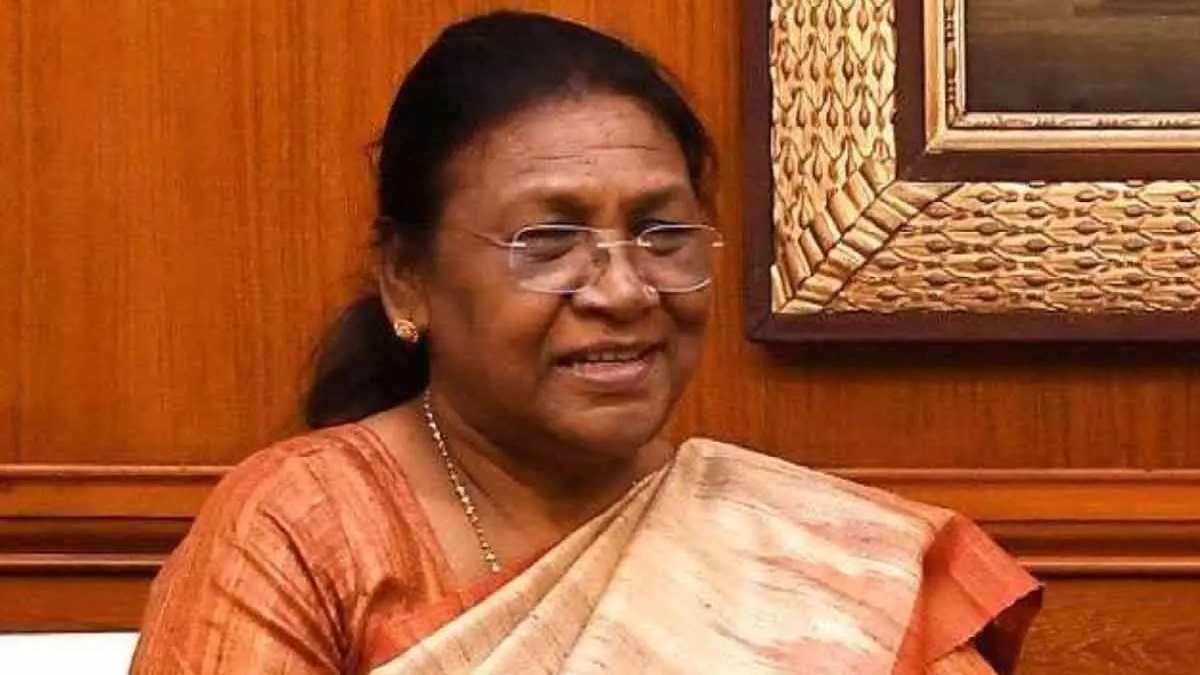Droupadi Murmu was sworn in as the 15th president of India on Monday.
Murmu had thus become the first tribal woman to be elected to the country’s top constitutional post.
She was administered the oath of office by Chief Justice of India N. V. Ramana inside the central hall of the parliament.
The ceremony was followed by a 21-gun salute after which she then delivered her address.
Murmu was accorded a guard of honour at the Presidential house in New Delhi, locally called Rashtrapati Bhavan.
The ceremony was attended by the chairman of the Rajya Sabha (upper house of parliament) M. Venkaiah Naidu, Prime Minister Narendra Modi, and Lok Sabha (lower house of parliament) Speaker Om Birla.
Others were federal ministers, heads of various diplomatic missions, lawmakers, and civil and military officers of the government, besides others.
In her speech after taking the oath, Murmu said her election was proof that the poor in India could dream and make them come true.
She added that she would focus on the welfare of the marginalised.
Murmu, 64, was the presidential candidate of the ruling National Democratic Alliance (NDA) led by Modi’s Bharatiya Janata Party (BJP).
She defeated Yashwant Sinha, the nominee of the opposition parties.
The president in India is indirectly elected by an electoral college consisting of the members of both houses of parliament, and members from the lawmaking bodies in states.
Indian president’s role was largely ceremonial.
However, the position assumed importance during times of political uncertainty in the country like a hung parliament.
Murmu hailed from the eastern state of Odisha and previously was governor of Jharkhand state.
BJP projected Murmu as a leader representing India’s poor tribal communities living in the hinterland, which generally lacked health care, connectivity and education facilities.
She had become the second-ever female president of India after Pratibha Devisingh Patil.
She belonged to the ethnic Santhal community, the third largest scheduled tribe community in India after Gonds and Bhils.
Nearly 80 per cent of the population in her village in the Mayurbhanj district is tribal. Only recently, electricity reached all homes in her village.
She was the first from her paternal village Uperbeda in the Mayurbhanj district to attend college for a bachelor’s degree.
After her studies, Murmu served as a junior assistant in the irrigation and power department of the local government in Odisha and later became a teacher.
Her political career started in 1997 as a councillor in Rairangpur.
She was elected as a lawmaker twice during local elections in 2000 and 2009, on a BJP mandate ticket from the state’s Rairangpur constituency in Mayurbhanj district.
In 2002, she became a minister in the state.
Murmu has held the Odisha government’s transport, commerce, fisheries and animal husbandry ministries.
She was appointed in 2015 as the governor of the Jharkhand state, thus becoming the first-ever tribal leader to hold the post.
Murmu’s nomination for the presidential post and her subsequent victory were seen as BJP’s big tribal outreach on the party’s road to the 2024 general elections, analysts said. (Xinhua/NAN)

